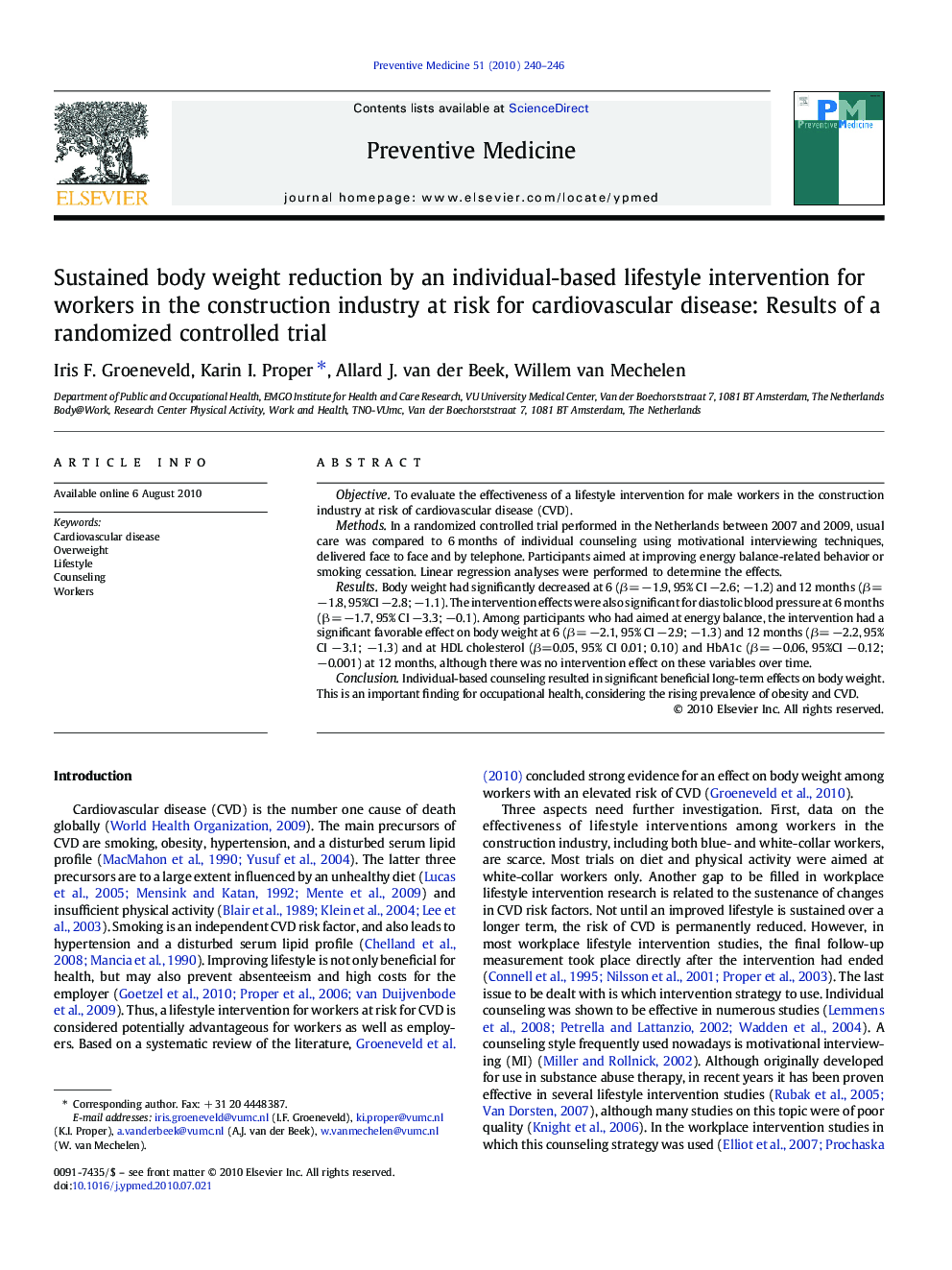| کد مقاله | کد نشریه | سال انتشار | مقاله انگلیسی | نسخه تمام متن |
|---|---|---|---|---|
| 3100994 | 1581662 | 2010 | 7 صفحه PDF | دانلود رایگان |

ObjectiveTo evaluate the effectiveness of a lifestyle intervention for male workers in the construction industry at risk of cardiovascular disease (CVD).MethodsIn a randomized controlled trial performed in the Netherlands between 2007 and 2009, usual care was compared to 6 months of individual counseling using motivational interviewing techniques, delivered face to face and by telephone. Participants aimed at improving energy balance-related behavior or smoking cessation. Linear regression analyses were performed to determine the effects.ResultsBody weight had significantly decreased at 6 (β = −1.9, 95% CI −2.6; −1.2) and 12 months (β = −1.8, 95%CI −2.8; −1.1). The intervention effects were also significant for diastolic blood pressure at 6 months (β = −1.7, 95% CI −3.3; −0.1). Among participants who had aimed at energy balance, the intervention had a significant favorable effect on body weight at 6 (β = −2.1, 95% CI −2.9; −1.3) and 12 months (β = −2.2, 95% CI −3.1; −1.3) and at HDL cholesterol (β=0.05, 95% CI 0.01; 0.10) and HbA1c (β = −0.06, 95%CI −0.12; −0.001) at 12 months, although there was no intervention effect on these variables over time.ConclusionIndividual-based counseling resulted in significant beneficial long-term effects on body weight. This is an important finding for occupational health, considering the rising prevalence of obesity and CVD.
Journal: Preventive Medicine - Volume 51, Issues 3–4, September–October 2010, Pages 240–246